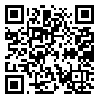دوشنبه 4 اسفند 1404
[Archive]
دوره 7، شماره 2 - ( 1-1398 )
جلد 7 شماره 2 صفحات 146-137 |
برگشت به فهرست نسخه ها
Download citation:
BibTeX | RIS | EndNote | Medlars | ProCite | Reference Manager | RefWorks
Send citation to:



BibTeX | RIS | EndNote | Medlars | ProCite | Reference Manager | RefWorks
Send citation to:
Khazaeili M, Zargham Hajebi M, Mohamadkhani P, Mirzahoseini H. The Effectiveness of Mindfulness-Based Internet Intervention on the Anxiety, Depression, and Fatigue of the Patients With Multiple Sclerosis. PCP 2019; 7 (2) :137-146
URL: http://jpcp.uswr.ac.ir/article-1-626-fa.html
URL: http://jpcp.uswr.ac.ir/article-1-626-fa.html
The Effectiveness of Mindfulness-Based Internet Intervention on the Anxiety, Depression, and Fatigue of the Patients With Multiple Sclerosis. Practice in Clinical Psychology. 1398; 7 (2) :137-146
چکیده: (5856 مشاهده)
Objective: Multiple Sclerosis (MS) is one of the prevalent autoimmune diseases that affects the central nervous system. It is a chronic neurological disorder that progresses to physical inability and cognitive abnormalities restricting the individual’s ability to function independently. The problems of MS patients significantly affect their psychological well-being. Considering the problems of MS patients, like commuting, traffic, and long distances to health centers, weather conditions, and enormous time and costs they spend on seeking health services, remote psychological intervention is an alternative and advisable choice. This study aimed to investigate the effect of a Mindfulness-Based Intervention (MBI) via a web conferencing application on the reduction of anxiety, depression, and fatigue of patients with MS.
Methods: This is a pre-test post-test quasi-experimental study with a control group. A total of 30 female patients with relapsing-remitting MS, who met the inclusion criteria were selected through purposeful sampling method from the members of the MS Society in Tehran and Qom cities in 2017. They were randomly divided into experimental (n=15) and control groups (n=15). The two groups completed Beck anxiety inventory, Beck depression inventory, and fatigue Inventory online in three stages (before the intervention, after the intervention, and one-month follow-up after intervention). The experimental group received eight 2-h sessions of MBI via a web conferencing software, while the control group received no intervention. For analyzing the collected data, repeated-measures multivariate analysis of variance was performed in SPSS V. 23.
Results: There was a significant difference between the two groups in the post-test scores of anxiety (F=50.277, P≤0.001, η2=0.642), depression (F=73.680, P≤0.001, η2=0.725), and fatigue (F=111.086, P≤0.001, η2=0.799). MBI significantly reduced the anxiety and depression and fatigue in the experimental group.
Conclusion: MBI is effective in reducing anxiety, depression, and fatigue of MS patients. This therapy can be applied as an effective method to improve the quality of life of MS patients.
Methods: This is a pre-test post-test quasi-experimental study with a control group. A total of 30 female patients with relapsing-remitting MS, who met the inclusion criteria were selected through purposeful sampling method from the members of the MS Society in Tehran and Qom cities in 2017. They were randomly divided into experimental (n=15) and control groups (n=15). The two groups completed Beck anxiety inventory, Beck depression inventory, and fatigue Inventory online in three stages (before the intervention, after the intervention, and one-month follow-up after intervention). The experimental group received eight 2-h sessions of MBI via a web conferencing software, while the control group received no intervention. For analyzing the collected data, repeated-measures multivariate analysis of variance was performed in SPSS V. 23.
Results: There was a significant difference between the two groups in the post-test scores of anxiety (F=50.277, P≤0.001, η2=0.642), depression (F=73.680, P≤0.001, η2=0.725), and fatigue (F=111.086, P≤0.001, η2=0.799). MBI significantly reduced the anxiety and depression and fatigue in the experimental group.
Conclusion: MBI is effective in reducing anxiety, depression, and fatigue of MS patients. This therapy can be applied as an effective method to improve the quality of life of MS patients.
نوع مطالعه: كاربردي |
موضوع مقاله:
رويكرد شناختي رفتاري
دریافت: 1397/9/26 | پذیرش: 1398/3/28 | انتشار: 1398/3/28
دریافت: 1397/9/26 | پذیرش: 1398/3/28 | انتشار: 1398/3/28
| بازنشر اطلاعات | |
 |
این مقاله تحت شرایط Creative Commons Attribution-NonCommercial 4.0 International License قابل بازنشر است. |



